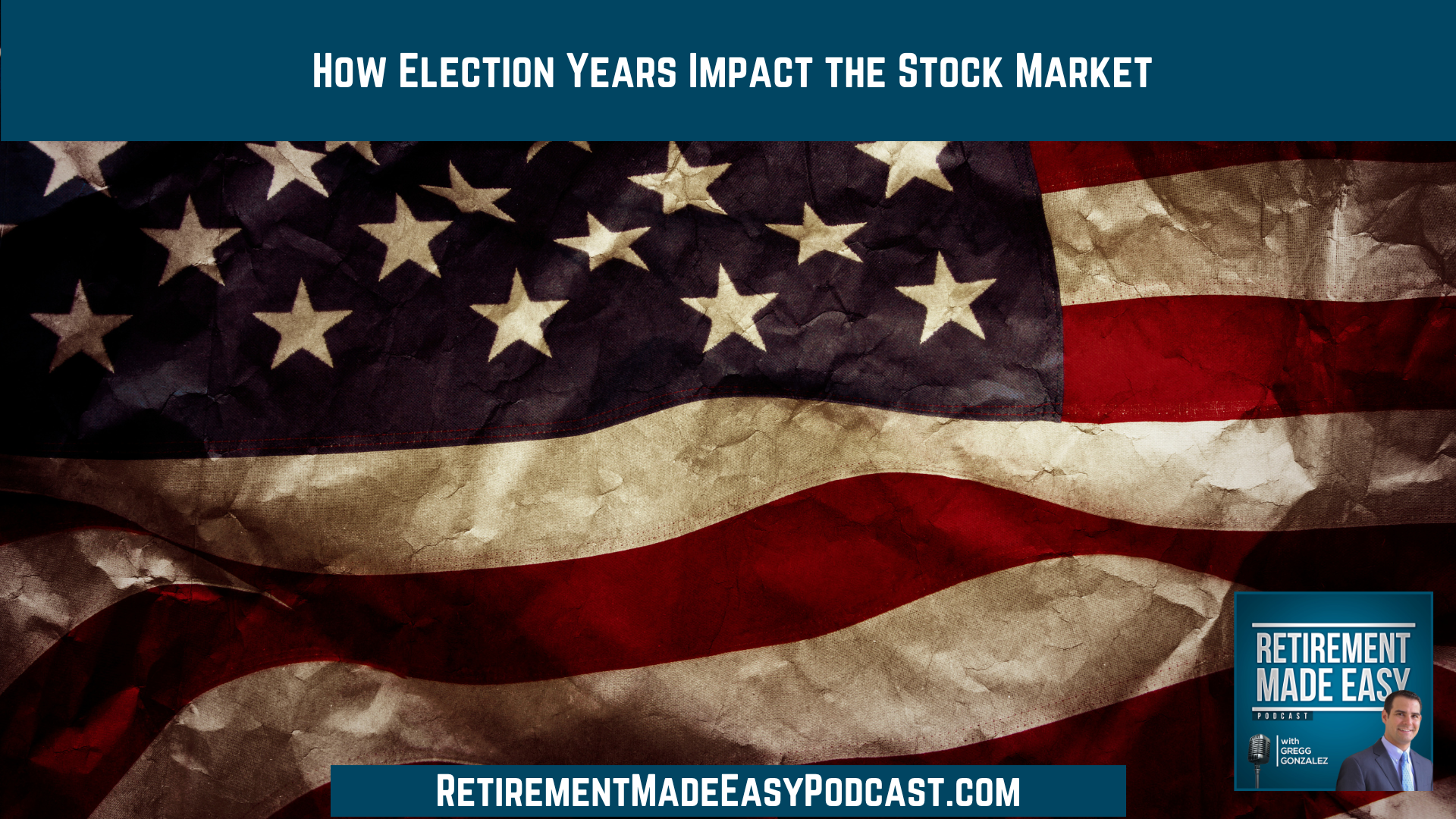
Do election years impact the stock market? If so, how? We know that election years introduce a rollercoaster of emotions for a variety of reasons. Those emotions tend to influence the stock market and the decisions individual investors make. So in this episode of Retirement Made Easy, I’ll share how the market responds to election years—and what you should do about it.
You will want to hear this episode if you are interested in…
- [2:00] Head to RetirementMadeEasyPodcast.com!
- [2:53] Election years are a roller-coaster ride of emotions
- [7:58] The presidential cycles and the stock market
- [11:36] How the stock market performed during each term
- [12:55] You can’t speculate on what will happen in the market
Election years are a roller-coaster ride of emotions
The market tends to behave well in election years. There have been 24 election years since 1928, 20 of which were positive (83% of the time). But there’s bad news: The market tends to be more volatile during election years.
In the long-term, the market will follow company earnings. As the companies perform, the share price will follow. The worse the earnings, the worse the stock prices. In the article, “How Presidential Elections Affect the Stock Market,” they share that the S&P 500 does poorly in periods of declining growth and high inflation. The market does best when the economy experiences rising growth and falling inflation.
The presidential cycles and the stock market
There’s not enough evidence to support the stock market performing better under a Republican or Democratic president. But we can look at the party in the white house—and the one that controls Congress—to gain some insights.
Since 1948, tracking the S&P 500:
- When there’s a Republican in the white house but Democrats control Congress, we see the worst-case scenario in the stock market. The results are well below average.
- When a Democrat is in the white house and there’s a split Congress, it’s slightly better than the results of the market with a Democrat in the white house and a Republican Congress.
- When you look at scenarios where one party has control of the white house and Congress, the results aren’t statistically significant. It won’t make a meaningful impact on the stock market.
How does the stock market perform during each President’s term in office? Listen to hear some interesting statistics!
You can’t speculate on what will happen in the market
I’ve been a financial planner for 15 years. Every time there’s a presidential election, I have one or two clients who let their emotions take the driver’s seat and they make unwise decisions with their investments. They tend to sell long-term investments and move the money into something they deem “safer,” such as CDs or money markets.
In their mind, the market is going to “crash” with the incoming President. But those clients always wish they’d stuck with the plan we created together. It always costs them opportunities for market growth—sometimes thousands and thousands of dollars.
I have a friend who’s an advisor who’s in charge of thousands of “accounts.” The clients that have accounts with these firms call them and give instructions to the advisor answering the phone. When elections come around, their calls increase significantly from people attempting to cash out their investments out of fear.
That’s why I always suggest working with a fiduciary financial planner who can help you stick with your long-term plan—because short-term decisions can have long-term negative consequences.
Resources & People Mentioned
Connect With Gregg Gonzalez
- Email at: Gregg@RetireSTL.com
- Podcast: https://RetirementMadeEasyPodcast.com
- Website: https://StLouisFinancialAdvisor.com
- Follow Gregg on LinkedIn
- Follow Gregg on Facebook
- Follow Gregg on YouTube



